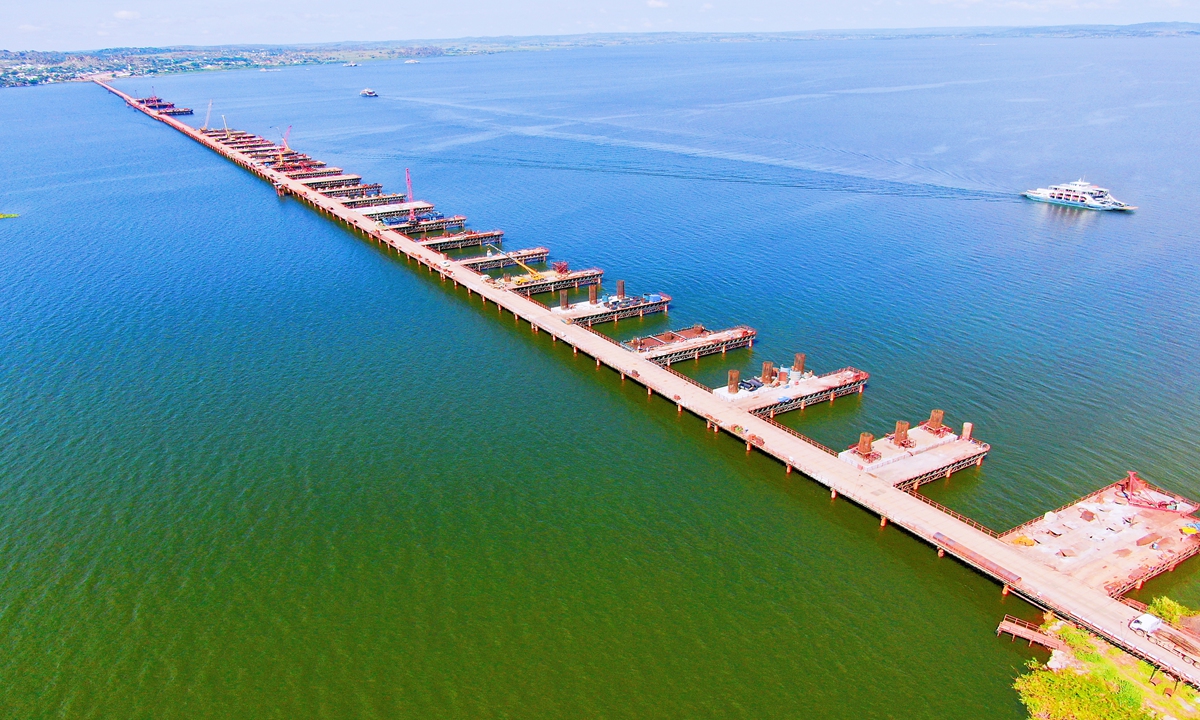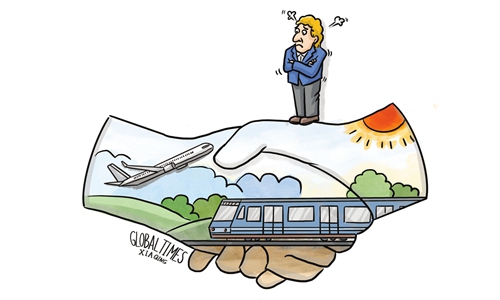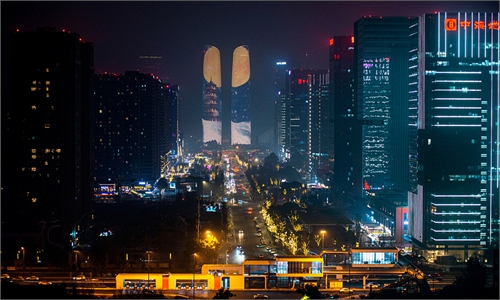Room of cooperation between Global Gateway and BRI ‘not limited’

China Civil Engineering Construction Corporation completed casting of pre-stressed concrete girder of a bridge built in Tanzania. Photo: Courtesy of China Civil Engineering Construction Corporation
The EU-Africa summit in Brussels concluded last week, following 18 months of patience due to the pandemic. A joint declaration titled "a joint vision for 2030" was issued afterwards, including a 150-billion-euro investment package and a major investment for Africa over the next seven years under EU's Global Gateway scheme.But several terms and conditions on the forthcoming cooperation, for example on energy, vaccines and Special Drawing Rights, remain to be clarified. It indicated that the room for cooperation between EU's Global Gateway and China-proposed Belt and Road Initiative (BRI) in Africa is not limited. And external actors can contribute to meeting UN Sustainable Development Goals and elevate living standards for African people.
For example, global players, including China and the EU, created a debt service suspension initiative to temporarily assist poor countries. The COVID-19 pandemic has also demonstrated that problems are transnational. China and the EU, for instance, are collaborating in providing vaccines to the developing world (including Africa) through COVAX.
Investments in energy, transport and digital infrastructure are in the interest of the EU, some of which overlaps with that of China's BRI projects. The Europe's Global Gateway can complement the China-proposed BRI, notwithstanding clashing business interests. While the Global Gateway, which EU claims representing its contribution to narrowing global investment gap, focuses more on mobilizing capital, the Belt and Road Initiative can immediately lead to the flow of capital.
In recent days, China and France signed their fourth round of demonstration projects on third-party market cooperation, with a total investment of more than $1.7 billion covering areas including infrastructure, environmental protection and new energy. France places emphasis on a new wave of investments in the African continent, and the recent phone call between the leaders of the two countries displays that new joint projects in Africa are in the interest of both.
France and the EU attempt to promote Global Gateway in Africa. More Sino-French dialogue, and Sino-European dialogue, with regard to the upcoming EU-China virtual summit set in April, will shed light on how synergies of Global Gateway with BRI might also be promoted.
China has certainly been a critical player in Africa. According to a report by the Center for Global Development, China tops the foreign financing for basic infrastructure in Africa. Its two main overseas development banks invested $23 billion in infrastructure projects on the continent, more than the other top eight lenders combined, including the World Bank, African Development Bank, and US and European development banks.
The Joint Statement of the 20th China-EU Summit (2018) mentions that the two sides would strengthen exchanges on Africa. They both agree on the importance of eradicating poverty and support the African Union's Agenda 2063. Synergies can be cemented in other sectors. Multilateral initiatives and peacekeeping operations under the UN umbrella are valuable, and also where the EU and China can also cooperate.
On Tuesday, France hosted a major Indo-Pacific forum, where foreign ministers from EU member states met foreign ministers from across the Indian and Pacific Ocean regions. One of the focuses of the forum is promoting the Global Gateway strategy, by highlighting leading infrastructure projects in the Indo-Pacific region, according to media reports.
Disagreements between the EU and China are well-known but it does not exclude the possibility of partnerships. It is of vital importance to ensure that business competition does not take a confrontational dimension but would meet prosperity expectations of citizens themselves. The contribution of both toward this end remains the desired goal.
George N. Tzogopoulos, a lecturer at the European Institute in Nice, France



